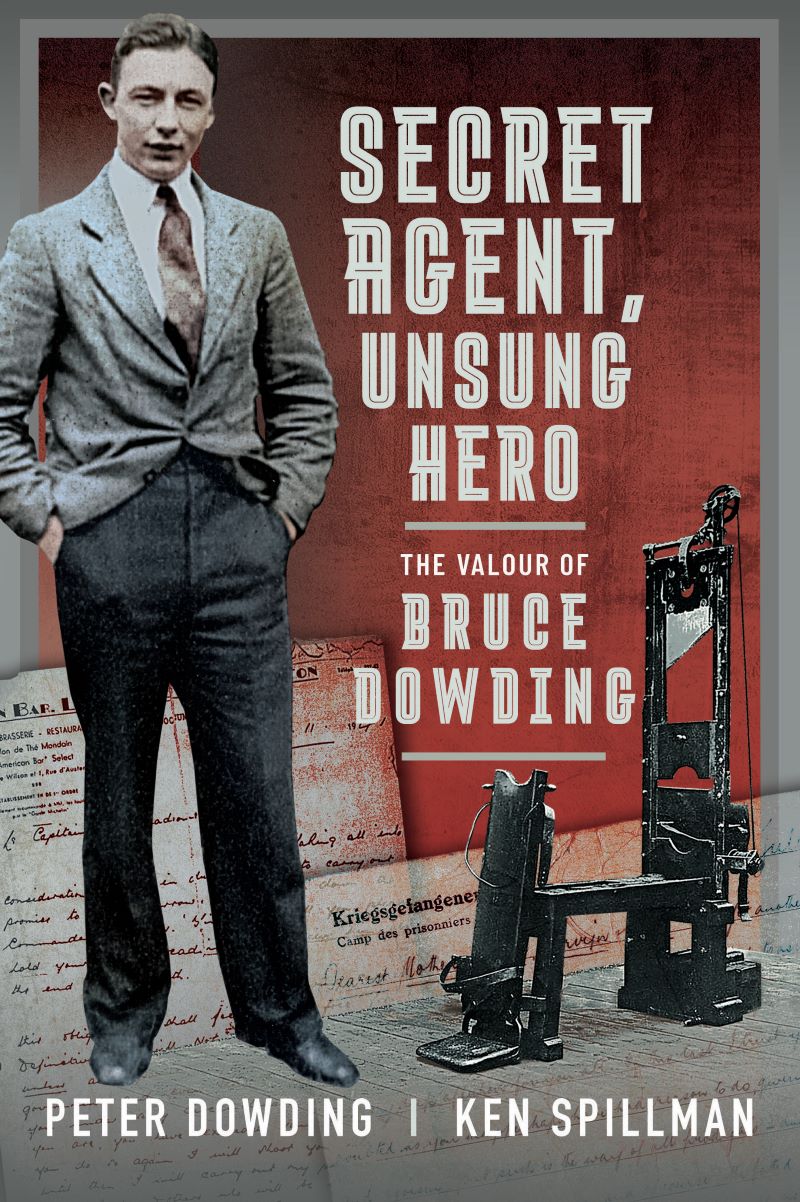Peter Dowding and Ken Spillman
Secret Agent, Unsung Hero: The Valour of Bruce Dowding
Secret Agent, Unsung Hero: The Valour of Bruce Dowding
Couldn't load pickup availability
Reviews
Quadrant
This biography of Melbourne-born secret agent Bruce Dowding is a fascinating portrait of a remarkable young Australian whose story was previously unknown to me. Ross Fitzgerald is Emeritus Professor of History and Politics at Griffith University writing for Quadrant.
The Age
The incredible but little-known story of the Melbourne teacher turned agent for British intelligence and the French underground, who was beheaded by the Nazis in World War II, is told in a new biography.
British historian Dr Helen Fry, author of MI9: A History of the Secret Service for Escape and Evasion in World War Two, said the book about Dowding told an “unknown true story” with clarity and pace. Fry said Dowding’s actions, risking his own life by rescuing others, using clandestine escape lines in Nazi-occupied Europe were “nothing short of heroic”. “His story really deserves to be better known,” she said. Carolyn Webb from The Age.
Secret Agent, Unsung Hero traces Dowding’s extraordinary journey from suburban Melbourne to the hellfire of Europe at war. It brings to life an astonishing array of famous figures and charts new territory in the history of escape and evasion.
Overview
When Bruce Dowding left Melbourne in January 1938, he planned only to undertake a short course at the Sorbonne. Gifted, strong and confident, he nonetheless felt that life – and France – had something big in store for him.
After a journey through the South Seas, Dowding found Paris in the throes of the ‘Last Dance’. With fascism in Europe ascendant, it had drawn the greats of 20th century music, art and literature like moths to a flame. Dowding chose not to leave a city he found intoxicating.
The outbreak of World War II threw him into a moral crisis. Raised as a pacifist, he felt driven to support France – even if it meant enlisting with the British Army as an interpreter. He survived the 1940 German invasion, escaped a POW camp by crawling through a sewer, and reached the relative safety of Vichy France by the European autumn.
In Marseille, Dowding found his mission. Based on three decades of research, Secret Agent, Unsung Hero establishes that he was centrally involved in the formation of one of the most successful escape and evasion lines of the war.
Working undercover as André Mason for British Intelligence organisation MI9, Dowding organised the exfiltration of hundreds of Allied servicemen via the eastern Pyrenees and Spain. His confreres included renowned figures of the French Resistance, and a key part of his network was a cell of exiled opponents of Spain’s Franco regime, led by legendary anarchist Francisco Ponzán-Vidal.
In Marseille and Perpignan, Dowding also cooperated with Varian Fry’s celebrated American rescue mission, which saved thousands of Jewish intellectuals, writers, artists and musicians from death at the hands of the Nazis.
Betrayed at the end of 1941 by Harold Cole, one of the most written-about traitors of World War II, Dowding endured eighteen months in Nazi prisons and the relentless bombing of the Ruhr by Allied aircraft. He was tried as an enemy of the Reich and executed by guillotine in Dortmund in June 1943. His fate remained unknown until 1946.
Posthumously, Bruce Dowding was recommended for a Croix-de-Guerre and a Légion d'Honneur. Protocol required only the approval of the Commonwealth of Australia, but bureaucratic indifference in his home country – experienced also by Nancy Wake – derailed the process.
Despite Dowding’s role in the rescue of hundreds of Allied servicemen, Australia has never recognised him as one of its heroes.
Share


